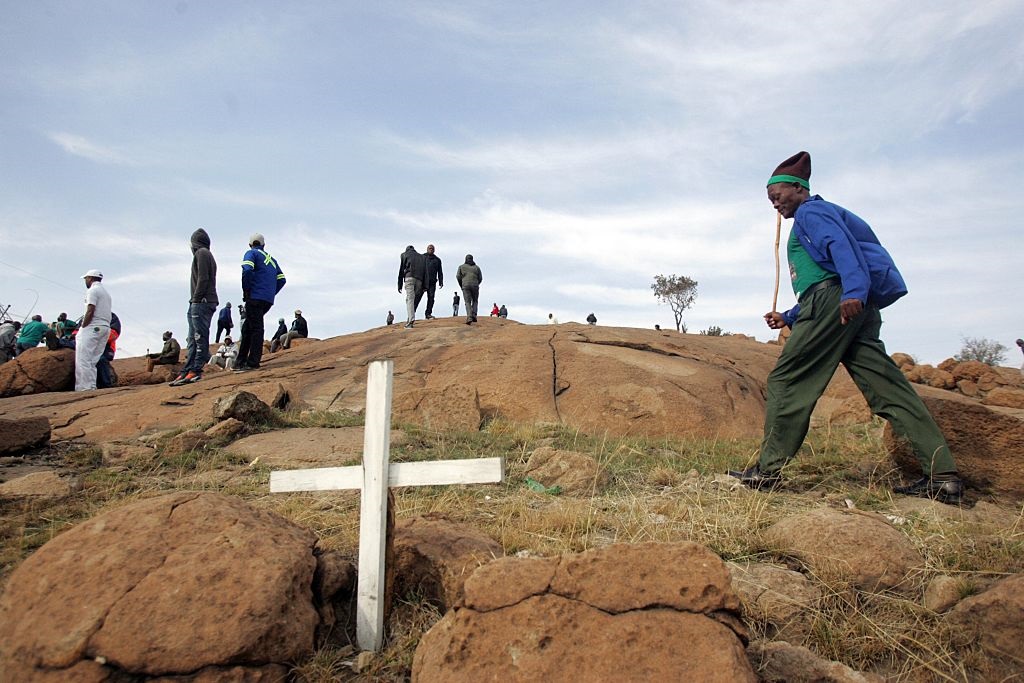
This year marks the ninth anniversary of the Marikana massacre and, for the second year in a row, it has passed by without much fanfare due to the Covid–19 pandemic.
Even so, in the weeks preceding August 16, I couldn’t help but think about those who had died.
Ntate Modisaotsile van Wyk Segalala was 60 years old when he met his end. He was due to retire at the end of 2012. On August 16, he went to the koppie for the first time. Striking workers were there to get feedback on how the negotiations for their R12 500 salary demand were unfolding.
This old man from Setlagole village, some 70km west of Mahikeng, was robbed of an opportunity to spend his retirement days with his loved ones. After 20 years of working at Lonmin, he was beginning to build a house for his family. A dream he never got to fulfil.
READ: Marikana: Still no justice
The killing continued into the new year. On May 11 2013, I received the news of the assassination of Mawethu Steven, a regional organiser for the Association of Construction and Mineworkers Union. He was killed while watching a soccer match at a tavern in Photshaneng village near Rustenburg by unknown assailants.
At the time of his death, he was due to give evidence at the Marikana Commission of Inquiry.
READ: ‘What about our loss?’ – relatives of those killed in lead-up to Marikana massacre
I had covered a similar story before. In October 2012, Daluvuyo Bongo, a branch secretary of the National Union of Mineworkers (NUM) was shot dead. This was after he had assisted the commission with the in-loco inspection near the Nkaneng informal settlement. He was also due to give evidence at the commission when he met his death.
Following the untimely death of Steven in 2013, hundreds of mine workers gathered again at the infamous Marikana koppie – the scene of a violent confrontation between the workers and the police in 2012.
In 2011, Steven, then a chairperson of the NUM in the Karee shaft of the world’s third-largest platinum producer, Lonmin, was dismissed by the union after a leadership tussle. His contender for the position of branch chairperson was followed to his house and stoned to death. No one was arrested for the murder.
In protest against the union’s decision, 11 000 workers downed tools. They were subsequently dismissed by the employer. After tedious and protracted negotiations between NUM and Lonmin, only 9 000 we re-employed.
Karee would later be a mobilisation ground for workers in their demand for a R12 500 take-home salary. One of my sources told me that the dismissed workers had also joined in the group of disgruntled mine workers.
READ: Extract: We are going to kill each other today – the Marikana story
They were hoping their support would yield desired results, but their hopes were dashed as their struggle was reduced to tears. The police mowed down 34 of their colleagues in the most brutal form.
The day after Steven was killed, the twin Shezi brothers met their untimely deaths. One of them was working in Gauteng. He was visiting his brother for the weekend at Wonderkop, a township near Marikana. He was due to leave for Gauteng on that Sunday, but a vigilante group looking for a man affiliated to the NUM stormed their house. When the brothers insisted that they had no knowledge of the man or his whereabouts, they were slaughtered there and then.
The Shezi brothers were not active in union politics, nor were they members of any union in the platinum belt.
READ: Families of Marikana victims want more than the R500 000 offered by state
Those who killed Steven and the Shezi brothers remain at large. Police are yet to determine whether these killings were related or not.
In August 2012, 44 people were killed during the violence that engulfed the relatively unknown informal settlement of Nkaneng near Marikana. These included two security guards, whose bodies were mutilated and set alight, allegedly by striking workers. Two police officers were also hacked to death a few days before the day of the massacre.
As we reflect on Marikana, which is fast slipping from our collective consciousness as a nation, we have to remember that those responsible still have to be held to account.
Tatai is a former journalist, activist and co-founder of Maftown Book Club
| ||||||||||||||||||||||||||||||
 |




 Publications
Publications
 Partners
Partners











